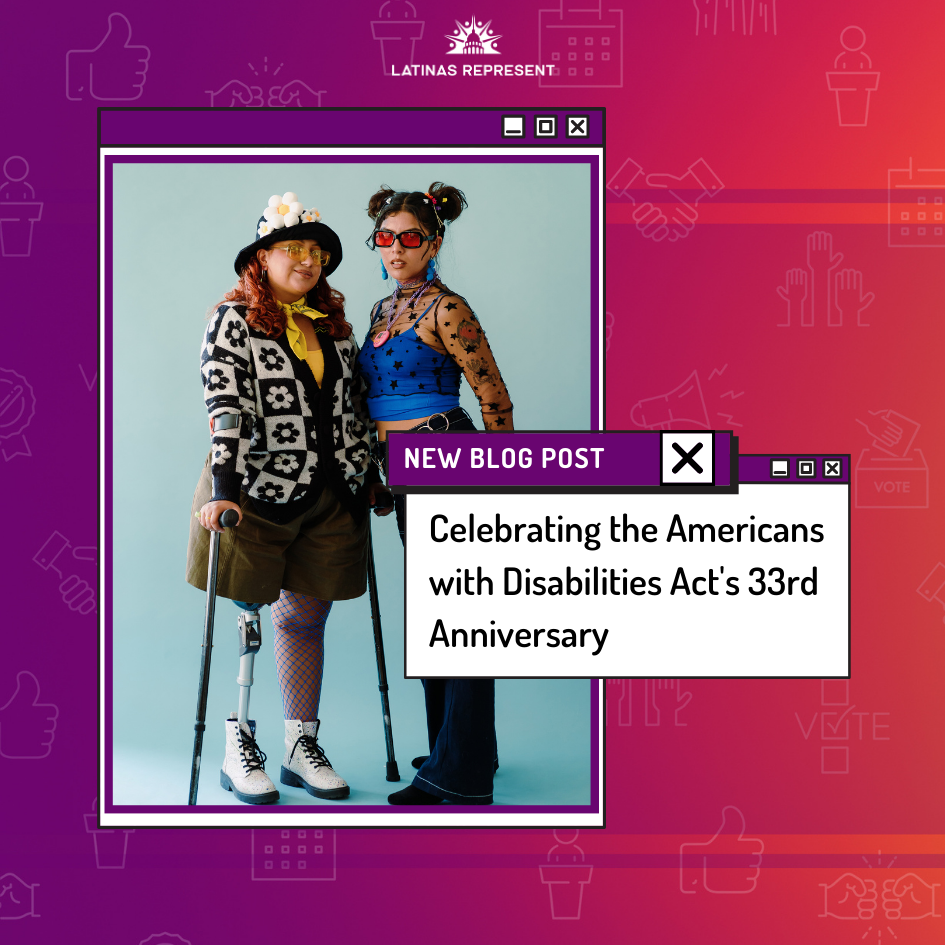Notes from the Field

Celebrating the Americans with Disabilities Act’s 33rd Anniversary
As we commemorate the 33rd anniversary of the Americans with Disabilities Act (ADA), it is essential to recognize the significant impact this landmark legislation has had on the lives of millions of Americans. Enacted on July 26, 1990, the ADA has opened doors and broken down barriers for people with disabilities. It has also been a driving force for inclusivity and equal opportunities within diverse communities. Among the communities that have benefited significantly from this legislation is the Latinx community. Below, we will explore how the ADA has positively impacted people with disabilities by promoting social, economic, and educational empowerment in numerous ways.
1. Increased Accessibility
One of the primary achievements of the ADA has been the transformation of public spaces through ramps, elevators, wider doorways, and accessible restrooms to increase accessibility for individuals with physical disabilities. This means that individuals with disabilities can now access public places more easily, making participating in various social, cultural, and economic activities simpler. Whether attending community events, visiting government institutions, or engaging in employment opportunities, the ADA’s accessibility measures have enhanced the quality of life for all people with disabilities.
2. Employment Opportunities
The ADA has been a catalyst for improving employment prospects for people with disabilities, including those within the Latinx community. This legislation prohibits discrimination based on disability in all aspects of employment, ensuring that individuals are judged on their skills and qualifications rather than their disabilities. Consequently, this has enabled folks with disabilities to have more opportunities to enter the workforce, contribute to their communities, and achieve financial independence. The ADA also encourages employers to provide reasonable accommodations to ensure that employees with disabilities can thrive in their roles, promoting diversity and inclusivity in the workplace.
3. Language Access and Cultural Competence
Language barriers can be a challenge for Latinx individuals with disabilities when seeking access to services and resources. The ADA has recognized the importance of language access and cultural competence, making it mandatory for agencies and organizations to provide information and assistance in languages other than English when needed. This provision has empowered the Latinx community, ensuring that language barriers are not obstacles to vital services such as healthcare, education, and legal support.
4. Education and Special Services
In education, the ADA has been instrumental in creating a more inclusive environment for students with disabilities. Schools must now provide reasonable accommodations and support services to ensure equal access to education. These accommodations may include sign language interpreters, assistive technology, or specialized learning materials.
5. Advocacy and Awareness
The ADA has sparked a nationwide conversation about disability rights and the importance of inclusivity. Organizations, advocacy groups, legislators, and communities have come together to promote awareness about disability rights, ensuring that the voices of people with disabilities are heard, and their rights are protected. This collective effort has helped break down stereotypes and stigmas and fostered a culture of acceptance and understanding.
In short, the Americans with Disabilities Act is a landmark legislation that empowered individuals with disabilities and strengthened the fabric of our society by fostering a more inclusive and compassionate community for all. As we move forward, let us continue to build on the ADA’s achievements, ensuring that all members of our communities can thrive.
Interested in learning more about disability rights and advocacy? Follow Blindish Latina, Deaf Loud, Andrea Lausell, and Disability Victory on Instagram.